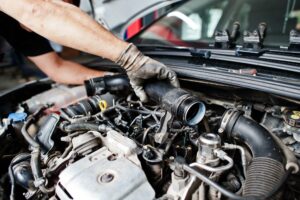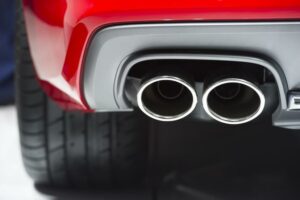Outline:
- Strange Feeling When Accelerating
- Braking Might Feel Weird
- It Might Produce Strange or Weird SoundsYou May Require Fewer Brake Jobs
- Conclusion
Summary: Just a couple of years ago, most people had barely heard about hybrid cars. Today, they are among the most popular choices. They come in an array of makes and models, making it quite a challenge to choose the one that suits your personality, lifestyle, and needs. We want you to make the most out of your purchase, so we’ve compiled below some of the vital things to keep in mind before buying a hybrid vehicle.
Strange Feeling When Accelerating
Hybrid cars offer many perks but also have some downsides. These include a muted or delayed reaction after stepping on the accelerator. Many also notice jerkiness when the engine is switched on and off, which may be due to its connection with the electric drive motor.
Yet, the most effective hybrid cars didn’t have the common shift feeling as they didn’t use traditional transmissions. Some brands use a power split device that has the same properties as a continuously variable automatic transmission. This causes some unnecessary sounds.
To provide impressive mileage, hybrid cars’ acceleration had to be different. It was true: some manufacturers or producers dabbled in hybrids and even accelerated better. However, they did not have the tremendous and impressive mileage of a Toyota Prius (except, perhaps, Ford’s hybrid cars that utilized a similar system).
Luckily, many of these have improved. Even Toyota, which uses the same fundamental style, has enhanced its hybrid system to refine smoothness and responsiveness. Other models or brands, which initially struggled, have managed to employ traditional step-gear transmission and other techniques in their hybrid cars that feel much more natural and bring mileage. They are not perfect matches, but they have come a long way. It does not hurt that today many non-hybrid cars use CVTs, so the feel of a traditional hybrid is less exclusive or foreign than in the past.
Braking Might Feel Weird
All hybrid cars use a regenerative braking system, whereby the motors or drive motors double as generators that capture the inertia—when coasting, braking, or going downward—and store it in the hybrid battery pack for future application. If this feature is lacking, a hybrid car will not be as practical. However, it makes braking feel strange and, in some instances, substandard compared to a well-executed traditional braking system in a conventional car. At a minimum, the regeneration must transition to the standard brake pads under heavier braking that can result in a grabbier pedal feel. The brake pedals can also feel artificial and mushy.
Yet, braking has gotten better over the years. A lot of drivers won’t even feel a difference when driving a new hybrid vs. a used older model. Also, strangely sufficient non-hybrid models are moving toward braking technology that mirrors what hybrids have. Therefore, in braking, the differences between non-hybrid and hybrid continue to narrow.

It Might Produce Strange or Weird Sounds
Droning is that inherent, whining noise a hybrid car is widely known for. Below are some of the reasons why this sound is part of your vehicle.
- First, you usually start under electric propulsion alone, which whispers quietly. If the engine switches on, the difference will be jarring no matter what.
- Second, the incessantly variable nature of some transmissions enables the gas engine to rev higher than a traditional vehicle would. Even under the same condition without the common relief of an upshift and associated range per minute drop.
- Third, the disparity is that this is a hybrid. Therefore, it needs to make the most out of the EPA numbers as everyone’s watching. If the option is between dropping 0.5 mpg and being annoying, the engineer will choose annoying every time.
- Fourth, high mileage comes from many things, one of which is lightweight. And you know what is heavy? Noise insulation! In the past, the race for higher mpg has been made from many noisy hybrids.
Luckily, these weird noises have been addressed. More recent hybrid cars no longer give drivers a reason to complain. Yet, you still need to be on guard for electronically synthesized pedestrian warning sounds produced at speeds up to 18.6 mph, which many hybrid cars and EVs already have.
You May Require Fewer Brake Jobs
People who purchase hybrid cars look to save money on gas. However, they may also save a considerable amount on routine brake jobs. This is because hybrid regenerative braking employs electric motors or motors as generators to decelerate the car without friction. As a result, the brake pads or shoes make less contact with the drums or discs than in a conventional vehicle. In turn, these components can last longer.
In earlier models, less frequently used brake technologies proved vulnerable to rust as they did not move enough and did not heat up, thus leading to moisture. In this condition, brake jobs were indeed needed. Many manufacturers have adapted and adjusted their designs to offset these conditions in electric and hybrid cars and prolong brake component life.
Conclusion
A hybrid car, just like a conventional vehicle, has its fair share of pros and cons. Before buying, it’s important to note that it will eventually experience problems with the brake system, AC, accelerator, and other components. So, once you have your dream hybrid make and model, observe proper and regular maintenance to prolong its life.
If you experience future issues, call a reliable hybrid car expert like Dependable Car Care. We are your number one car repair workshop in Ventura, California that offers different services, including hybrid brake repair, battery replacement, check engine light on and off, and more.
Book an appointment with our ASE-certified mechanics today to know how we can help you!




